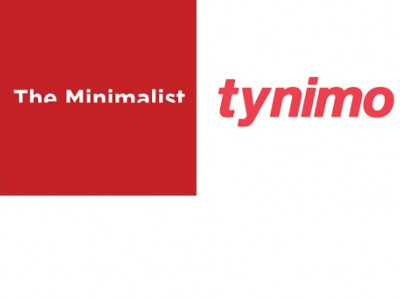Tynimo plans to boost its offline presence
Indian daily lifestyle retailer Tynimo is the first retailer to launch ‘Store On Wheels’ as a way to improve customer convenience. The store has been designed aesthetically, the best in the industry. The brand is among the finest in terms of design, execution cost, and quality. Apart from this, the products are better designed and economically priced in comparison to other players. The major range of products is unique and rare to find elsewhere. Besides, Tynimo has taken multiple steps as a part of its sustainability initiative, which are as follows:
-
E-bill to reduce paper wastage
-
Recycled paper carry bags
-
Reduced use of plastic in packaging
-
Introduced eco-friendly alternatives to existing products; for example Hemp range in the bags category
Due to ongoing lockdowns, a drop in shopping sentiment because of restricted income, and stringent regulations, the COVID outbreak had a significant negative influence on the brand. The lack of appropriate products at appropriate prices and qualified vendors to set up the stores were the biggest challenges Tynimo encountered during the pandemic. In addition, a lack of brand awareness resulted in inadequate negotiating positions with any stakeholder. Post-COVID, Tynimo witnessed a growth in sales in the southern region. The brand has eliminated unnecessary expenditures, shut down underperforming locations, and concentrated more on hot sellers, such as Masks, which were in high demand. “We feel post-COVID, consumer sentiments have not yet been fully recovered as pre-COVID scenario,” said Akshita Jain, Marketing Head, Tynimo.
The brand now intends to open 50 to 80 outlets over the next three years with the goal of growing its e-commerce business to 30% of total sales by 2024. They are investing in establishing an omnichannel shopping experience for customers to expand the range of Indian items. It is expected that airport stores and ‘Store On Wheels’ will grow to 15 each by the end of 2023 and 2025, respectively. Additionally, Tynimo has a dedicated space for Indian handicrafts to boost India’s art and craft items, furthering the MakeInIndia initiative. The affordable pricing offers a strong foundation for promoting the exquisite craftsmanship of Indian soil. The Indian handicrafts section is curated by artists from Jaipur, Varanasi, and Saharanpur. Each artistic collection is distinct and embodies the local culture. The primary source of the raw materials is Rajasthani wood carvings like Amba Bari and Kadam.
The brand’s current goals are to expand its visibility throughout the nation through airports in major cities, introduce more variations of hot-selling SKUs with better pricing ranges, and strengthen the backend retail team to improve planning and operations while thriving in the e-commerce channel.
Going forward, Tynimo plans to increase its presence in airports around the Middle East and South-East Asia in the next three to four years. Commenting on the brand’s growth strategies, Vaibhav Jain, Founder, Tynimo, stated, “The ups and downs of entrepreneurship are comparable to those of a rollercoaster. The journey will only be enjoyable if we have the required passion and dedication.”





Share
Facebook
YouTube
Tweet
Twitter
LinkedIn